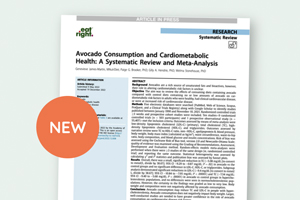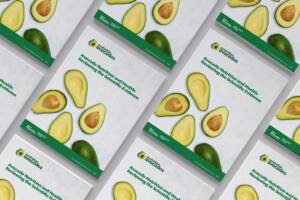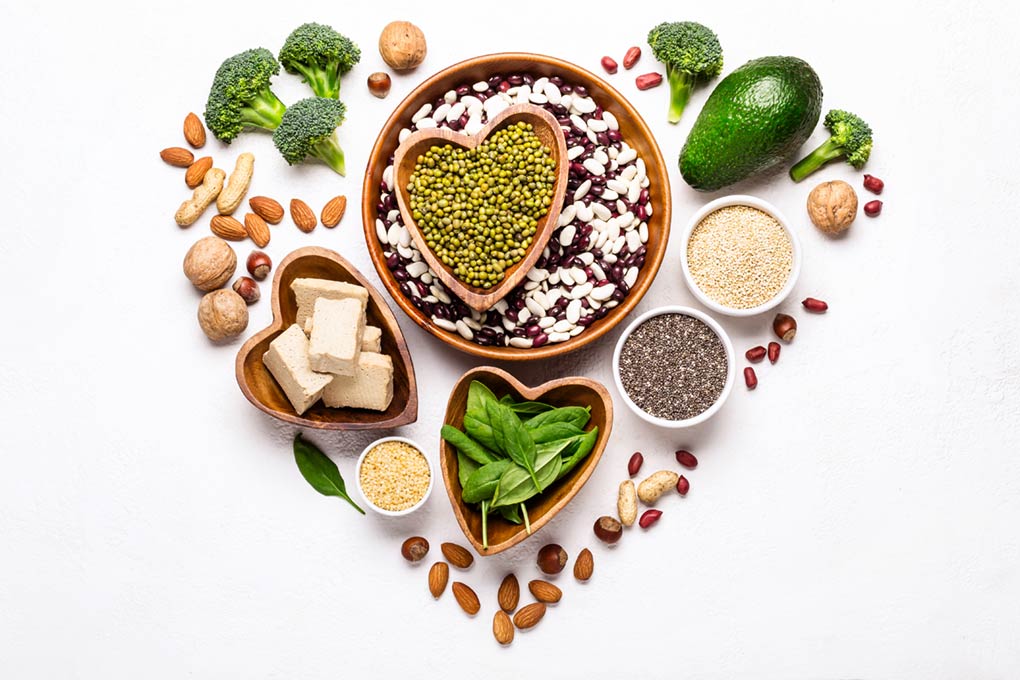There is evidence for regular avocado consumption causing a moderate to large reduction in LDL (bad) cholesterol levels, and thus protection from cardiovascular disease.
LDL cholesterol is a critical, causal and cumulative risk factor for cardiovascular disease (CVD) and a primary target for intervention.
Diet has significant potential, and this systematic review of the accumulated evidence from systematic reviews and meta-analyses was designed to update the evidence. A total of 37 guidelines, 108 systematic reviews and 20 RCTs were included and assessed using the GRADE (Grading of Recommendations Assessment, Development and Evaluation) process.
High evidence was found for:
- Foods high in unsaturated and low in saturated and trans-fatty acids (e.g. rapeseed and canola oil) with added plant sterols/stanols and high in soluble fibre (e.g. oats, barley and psyllium) producing at least moderate (0.20-0.40 mmol/L) reductions in LDL cholesterol.
- Unfiltered coffee causing a moderate to large increase.
- Soy protein, tomatoes, flaxseeds and almonds causing small reductions.
Moderate evidence was found for:
- Avocados and turmeric causing moderate to large reductions.
- Pulses, hazelnuts, walnuts, high-fibre/wholegrain foods and green tea causing small to moderate reductions.
For avocado specifically, the paper noted that despite their moderate to large effect on LDL cholesterol, the evidence for avocados was only considered moderate due to the risk of bias and inconsistency. The methodology and amount used (‘dose’) varied between studies, for example:
- The habitual diet in 2 of 10 RCTs.
- The approximate weighted mean dose was:
- 219g per day in 5 of 14 comparisons
- 22.5% daily energy in 3 of 14 comparisons
- 1 avocado per day in 2 of 14 comparisons
Practice Tips
- Prioritise LDL cholesterol reduction in the prevention and management of cardiovascular disease and incorporate dietary modification as a primary LDL cholesterol reduction strategy.
- Aim for a diet high in unsaturated and trans-fats, low in saturated fats and high in soluble fibre.
- Promote the Australian Dietary Guidelines that recommend regular consumption of vegetables, fruits, wholegrains, pulses and legumes – specifically soy protein, tomatoes, flaxseeds, almonds and avocado.
- Avoid unfiltered coffee and encourage green tea as a beverage.
Reference:
Schoeneck M, Iggman D. The effects of foods on LDL cholesterol levels: A systematic review of the accumulated evidence from systematic reviews and meta-analyses of randomized controlled trials. Nutr Metab Cardiovasc Dis. 2021 May 6;31(5):1325-1338. doi: 10.1016/j.numecd.2020.12.032.



